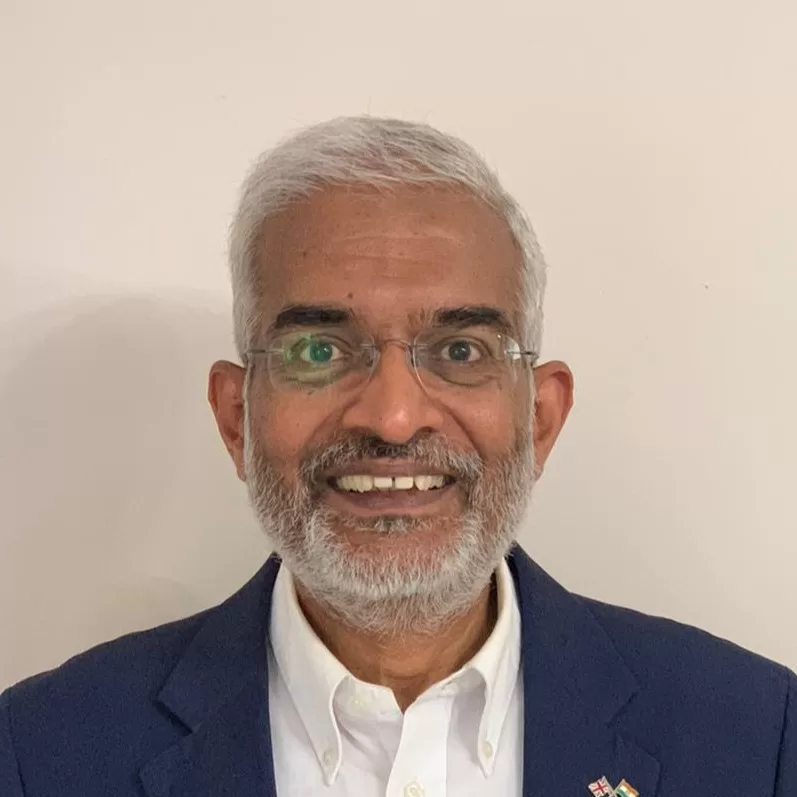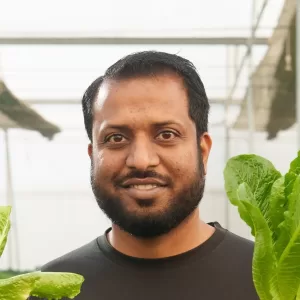THRIVE Project is incredibly grateful to Sunil Murlidhar Shastri, Chandan Varshney, and Mohamed Mounir for their inspirational presentations during the June 2025 Thrivability Matters Webinar. This webinar focused on THRIVE Project’s June theme – The Biosphere: Water, Sanitation & Pollution. Our presenters captivated us as they shared their extensive knowledge regarding this theme, discussing the biosphere where we all live and draw water from, and the need to ensure clean water and sanitation to ensure not just cleaner ecosystems, but better lives for all.
Here are the highlights from our webinar!
About the June 2025 Speakers

Sunil Murlidhar Shastri is a consultant, educator, and speaker in Ocean and Environmental Governance.
Throughout his career, he has worked in numerous roles, including as a university academic, ocean and environmental policy consultant and researcher, and roles in mining and ocean engineering.
Since 1982, he has made it his mission to protect ocean life, and has worked ever since to inspire and guide others on how we can achieve ‘Pacem in Maribus’, or Peace in the Ocean.
Chandan Varshney is an entrepreneur and former Amazon leader with over 17 years of experience in product management and supply chain innovation.
He co-founded OnlyHydroponics to drive sustainable, soil-free farming in India.
A mentor to startups and an advocate for clean food systems, he blends business expertise with a strong commitment to environmental impact.


Mohamed Mounir is an environmental and natural resource management specialist with over seven years of experience in agroecology, watershed restoration, rural livelihood development, climate adaptation, and community resilience.
He is a certified Agroecologist with extensive expertise in monitoring, evaluation, and data analysis. He also possesses a strong background in program implementation, stakeholder engagement, and knowledge management.
Summary of the JUNE 2025 Webinar
As an organisation, THRIVE Project endeavours to guide humanity towards a more thrivable future. We had the privilege of hosting these speakers as guest presenters for our webinar.
SUNIL MURLIDHAR SHASTRI –
“Water: A Global View”
In a compelling presentation, Sunil Murlidhar Shastri explored how water is a finite and fragile resource, with only 2.5% of all water being freshwater. Given that the vast majority of this water is held within ice caps and underground aquifers, only a small amount is usable. This is problematic, as humanity uses more water than can be replenished.
He demonstrated how we use water, the issues that arise from excess water use, and various solutions on how water can be preserved and protected from pollution and other harms. Through this, it aims to inspire discussion about solutions to this issue, and ensure that we have enough water for future generations.
CHANDAN VARSHNEY –
“The Link Between Water Conservation and Hydroponics”
The second speaker, Chandan Varshney, highlighted how water is crucial to agriculture, especially as increasing amounts of food are needed to sustain the world’s population.
Specifically, it focuses on how regular farming practices often alter the environmental conditions of the soil, to the point of damaging the fertility of the land. This, alongside water pollution owing to excess chemicals seeping through soil and water bodies, threatens the livelihoods of farmers and those who depend on their crops.
To this end, he explores hydroponics, its benefits for ensuring sustainable agriculture, and OnlyHydroponics’ efforts in pioneering cutting-edge hydroponics technologies, not just to reduce water usage, but to preserve the land and ensure agriculture can sustain the needs of societies.
MOHAMED MOUNIR –
“Biosphere in Balance: Water, Sanitation, Pollution & Restoration”
Following our first two compelling speakers, Mohamed Mounir discussed an integrated approach to watershed restoration in the Mount Bamboutos landscape of Cameroon, combining community-based governance with scientific baseline assessments to ensure sustainable, inclusive, and resilient forest and watershed management.
The presentation outlines this approach in detail, including studies and surveys before restoration, criteria for selecting restoration species, the impact of land use zoning, (including protected zones, agroforestry areas, and conventional farming lands), and their contributions to pollution control and biodiversity enhancement.
Emphasis is placed on the connections between water security, sanitation practices, and pollution control, and how these systems influence biosphere resilience. Mount Bamboutos serves as a case study for a broader discussion on landscape governance and sustainability, offering practical strategies for restoring ecological integrity while empowering local communities to steward natural resources effectively.
Moving Forward from June 2025
The June 2025 Thrivability Matters Webinar showcased insights from Sunil Murlidhar Shastri, Chandan Varshney, and Mohamed Mounir. If you missed the live event or the Q&A session, you can view the recordings on our YouTube channel.
If you’re interested in joining us after the June 2025 Thrivability Matters Webinar, there are plenty of ways to get involved. You can follow us on social media platforms such as LinkedIn, Instagram, and Facebook. Additionally, you could subscribe to our YouTube, listen to our podcasts, sign up for our newsletter, stay up to date with our articles, attend our free webinars, or even join us as a volunteer to make an even greater impact on the world.
Interested in Thrivability?
Want to be kept in the regenerative loop with THRIVE?
Got more questions?
Ask an expert!























